- About Ramapo
- Academics
- Admissions & Aid
- Student Life
- Athletics
- Alumni
- Arts & Community
- Quick Links
- Apply
- Visit
- Give
Center for Data, Mathematical, and Computational Sciences
March 29, 2023Bytes & Bites: Dinner and Data with Industry Professionals
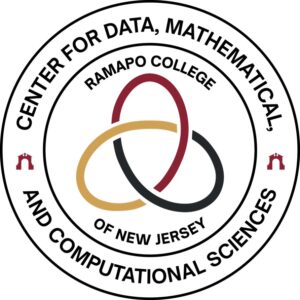
Thursday, April 20, 3:30 PM – 6:30 PM (Alumni Lounges)
Please join us for sessions with Jane Riff, Product Manager, Business Intelligence & Advanced Analytics at KPMG and Peter Podolski, Senior Data Scientist at UPS
These sessions will focus on discussing the Capabilities of a Data Science Center of Excellence and on Theory, Practice and Pragmatism in Enterprise Data and Computer Science. This is a 3 part event, with a dinner for attendees served in between the 2 lectures for an opportunity for students to mingle with presenters and to informally discuss topics relating to the presentations.
Event Schedule:
-
- 3:30 PM – 4:30 PM: Presentation on Capabilities of a Data Science Center of Excellence by Jane Riff, KPMG
- 4:30 PM – 5:30 PM: Dinner and mingle with DMC students
- 5:30 – 6:30 PM: Presentation on Theory, Practice, and Pragmatism in Enterprise Data and Computer Science by Peter Podolski, UPS
Categories: Data Science, Lecture Series
March 29, 2023Data in the Music Industry
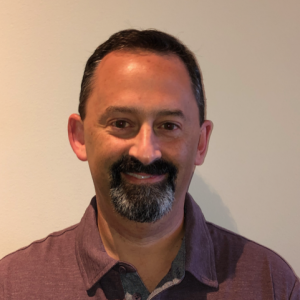
Tuesday, April 4, 5:00 PM – 6:30 PM – SC-158 (Alumni Lounges)
Please join us for a talk by MSDS Alum Keith Osani, VP of Global Technology Data & Analytics at Sony Music!
This session will discuss the type of data available to music companies from digital platforms such as Spotify, Apple Music, Amazon, YouTube, TikTok and more. We will also explore the increasing volumes of data and the data engineering required to handle it all. Insight will also be given into the tools that data analysts are using to access the data and what types of analysis they are performing.
Categories: Data Science, Lecture Series, MSDS
March 15, 2023Decoding Data Science: A secret recipe for success
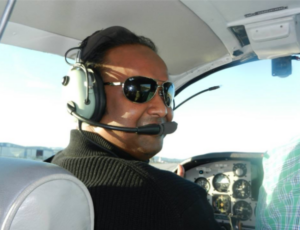
Thursday, March 30, 2023 7-8pm – ASB 323
Please join us for a DMC Lecture Series event: Decoding Data Science: A secret recipe for success, given by Dr. Kanad Basu, Data Science Leader & Applied Mathematician!
Abstract of talk:
Data Science has completely transformed all major business sectors such as IT, Banking, Healthcare, Entertainment, Sports & much more. In order to make better & smarter decisions, businesses all over the world have long gathered & analyzed data. The global data science platform market was worth US $ 3.93 billion in 2019 and US $ 4.89 billion in 2020. From 2020 to 2027, it is predicted that the Data Science market will increase at a compound annual rate of 26.9 percent. There has never been a better time to study analytics & data science and contribute to this exciting field.
In this talk Kanad will share his transition journey, lessons picked up along the way, the skills one must develop for being a successful data scientist and how to prepare & market yourself for the job market.
About the author:
Kanad Basu, an interdisciplinary scientist who has 18+ years of analytics and data science experience spanning across academia and industry. Kanad holds the prestigious “Professor of Practice” position at Thunderbird School of Global Management, Arizona State University. He also led a market research data science team at Medallia that focuses on building a consumer behavioral intelligence and benchmarking platform that combines millions of consumer activities to allow businesses to understand where, how, and why consumers spend their time and money. Before Medallia, he led the computer vision data science team at Covisus where he and his team implemented state of the art computer vision algorithms to keep our nation safe by securing supply chains, protecting global compliance for pharmaceutical and medical industries and aiding brands in the prevention of product tampering.
Kanad holds a PhD in Applied & Computational Mathematics, has multiple publications, patents & book chapters around big data analytics and statistical applications in the field of Mathematical Biology & Mathematical Finance. Kanad is a frequent speaker at national & international conferences in AI & Data Science.
Categories: Data Science, Lecture Series, MSCS, MSDS
February 14, 2023Maximum Likelihood Estimation for Discretely Observed Multivariate Vasicek Processes
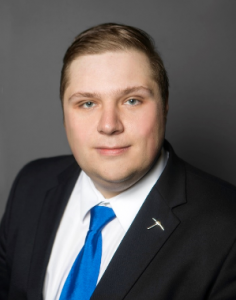
Tuesday, February 21, 2023 – Via WebEx
Please join us for a DMC Lecture Series event: Maximum Likelihood Estimation for Discretely Observed Multivariate Vasicek Processes, given by Dr. Michael Pokojovy, Assistant Professor, Department of Mathematical Sciences, PhD Program in Data Science, PhD Program in Computational Science, The University of Texas at El Paso (UTEP)!
This talk will discuss analyzing multiple zero-coupon bonds simultaneously to forecast future short rate dynamics. Those forecasts can play important roles in risk management, portfolio optimization, and other applications.
Because of low correlation with other asset classes, bonds play major roles in portfolio diversification efforts. A pure discount or a zero-coupon bond is a contract that does not involve intermediate interest payments but is traded at a deep discount, rendering yields at maturity when redeemed at full face value. As investment funds can create robust diversified portfolios with bonds, it is imperative that multiple bonds be analyzed simultaneously. The classical Vasicek model studies individual zero-coupon bonds and assumes the instantaneous interest rate follows a mean reverting process. In this talk, we consider an extension of the original Vasicek model to multiple zero-coupon bonds. The resulting coupled model is given by a stochastic differential equation driven by a p-dimensional white noise process. Given a set of observations over an equispaced time grid, our goal is to calibrate the system and forecast future short rate dynamics. Those forecasts can play important roles in risk management, portfolio optimization, and other applications. This is joint work with Ebenezer Nkum and Thomas M. Fullerton (UTEP).
Michael Pokojovy is an Assistant Professor of Data Science and Statistics. He holds a Ph.D. and a Dipl.-Math. degree in Mathematical Sciences, both from the University of Konstanz, Germany. Prior to his current appointment at UTEP, Dr. Pokojovy has held several postdoctoral positions in Europe and the US. His research interests include Statistical & Machine Learning, Big Data Analytics, Scientific Computing, etc. In addition to numerous theoretical and methodological developments, he has a track record of collaborative research in statistical process control, quantitative finance, engineering, biomedical sciences, rational mechanics, etc. He has authored and co-authored a number of publications in a variety of professional journals. Dr. Pokojovy has also mentored and advised numerous undergraduate, graduate and doctoral students as well as postdoctoral scholars who are now successfully pursuing various exciting careers in industry or academia.
This talk was supported by a grant from the Ramapo College Foundation.
WebEx information will be provided upon registration
Categories: Data Science, Lecture Series, MSCS, MSDS
January 3, 2023Data Storytelling: The Secret to Delivering Business Impact with Analytics
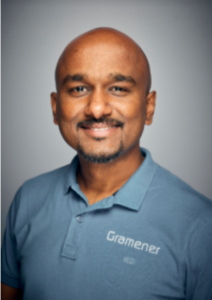
Thursday, January 26, 2023 – 7-8pm – Location ASB 323
Please join us for a DMC Lecture Series event on Data Storytelling: The Secret to Delivering Business Impact with Analytics, given by Ganes Kesari, the Co-founder and Chief Decision Scientist at Gramener!
Did you know that over 50% of analytics projects fail due to bad data storytelling? Organizations invest heavily in hiring data science experts, buying expensive licenses, and setting up analytics processes. However, without the right data visualization, all this effort will go to waste. Stories have the power to engage people and inspire them to action. This session will introduce you to the concept of data storytelling. It will reveal the 4 steps to mastering visual storytelling with data using exciting industry examples.
Takeaways:
- Understand the top challenges in converting data into actionable business decisions
- Learn the 4-steps to building powerful data stories using real-world case studies
- Find out how data visualization can drive decision-making at organizations
Ganes Kesari is the Co-founder and Chief Decision Scientist at Gramener , a data science company that helps organizations present data insights as stories. He advises executives on data-driven leadership and helps organizations adopt a data culture. Ganes is a TEDx speaker and Forbes Contributor. Find his latest work here: gkesari.com.
This talk was supported by a grant from the Ramapo College Foundation.
Categories: Data Science, Lecture Series, MSCS, MSDS
October 25, 20222022 Raciti Memorial Lecture - The Curious Economics of Big-time College Sports
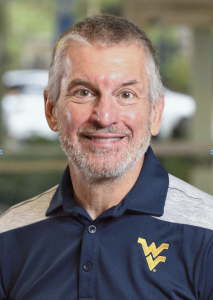
Thursday October 27, 6 pm, ASB 136
Please join us for a DMC Lecture Series event on economics, data, and sports – given by Dr. Brad Humphreys, West Virginia University and the Eastern Economic Association!
Dr. Humphreys is one of the leading sports economists in the world today, mainly known for his contributions to the economics of sports stadiums and the economics of college athletics. He is the 2016-17 Benedum Distinguished Scholar in Social and Behavioral Sciences at WVU and is the recipient of the 2022 Peter Sloane Award for his research contributions to European sports economics. He served as the President of the Eastern Economic Association in 2021-2022.
He is Editor-in-Chief of Contemporary Economic Policy, a general interest economics journal and serves on the editorial boards of the Journal of Sports Economics, the International Journal of Sport Finance, the International Journal of Sport Management and Marketing, and International Gambling Studies. Dr. Humphreys has published over 100 peer reviewed journal articles in leading economics journals.
This talk is sponsored by the Eastern Economic Association in partnership with the Sabrin Center and the Center for Data, Mathematical, and Computational Sciences.
Categories: Data Science, Lecture Series, MSDS
October 11, 2022Using Data and Analytics in Sports
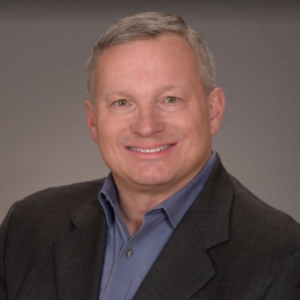
Friday, October 21st at 12-1pm in ASB 225
Please join us for a DMC Lecture Series event on Using Data and Analytics in Sports, given by Dr. Scott Nestler, Principal Data Scientist & Optimization Lead, SumerSports LLC!
The use of data and analytics in sports has changed significantly in the nearly two decades since the release of the book “Moneyball” in 2003. Moving from descriptive to predictive and prescriptive (in terms of the types of analytics used), this evolution was enabled by changes in the type (box score, play-by-play, tracking) of data, as well as growth in quantity and improvements in quality. Analytic methods are being used to measure and predict individual and team performance, prevent injuries, and improve business outcomes. Besides providing a variety of examples from across different sports, I will provide suggestions on how those seeking to get into the growing field of sports analytics can ensure that they have the skills that are sought by teams and other organizations.
This talk was supported by a grant from the Ramapo College Foundation.
Scott is a “pracademic” who joined the Sumer Sport team in 2022, after a variety of experiences, including: Data Science Senior Manager / Director of Statistics & Modeling at Accenture Federal Services; Academic Director for the MS in Business Analytics program at Notre Dame, and a full career as an operations research analyst (and leader of analytic teams) in the U.S. Army. He teaches as an Adjunct Faculty Member for Notre Dame and SMU. Scott is very involved as a volunteer and leader with the Institute for Operations Research and the Management Sciences (INFORMS), where he served as the first Chair of the Analytics Certification Board, the governing body for the Certified Analytics Professional (CAP) program. He has a PhD in Management Science from the University of Maryland – College Park, is a CAP, and also an Accredited Professional Statistician (PStat). He is co-author of the book
“Mathletics: How Gamblers, Managers, and Fans Use Mathematics in Sports,” Princeton University Press, 2002.
His motto is, “Make yourself useful, doing something hard, with good people.” Scott enjoys traveling (he’s been to all 50 states and 25 countries), reading, cooking, and sitting around the firepit with family and friends.
Categories: Lecture Series
September 27, 2022Data Assimilation and Dynamical Systems Analysis of Circadian Rhythmicity and Entrainment

Wednesday, October 12th at 6-7pm in ASB 327
Please join us for a DMC Lecture Series event on Data Assimilation and Dynamical Systems Analysis of Circadian Rhythmicity and Entrainment, given by Dr. Casey Diekman of the New Jersey Institute of Technology!
Circadian rhythms are biological oscillations that align our physiology and behavior with the 24-hour environmental cycles conferred by the Earth’s rotation. In this talk, I will discuss two projects that focus on circadian clock cells in the brain and the entrainment of circadian rhythms to the light-dark cycle. Most of what we know about the electrical activity of circadian clock neurons comes from studies of nocturnal (night-active) rodents, hindering the translation of this knowledge to diurnal (day-active) humans. In the first part of the talk, we use data assimilation and patch-clamp recordings from the diurnal rodent Rhabdomys pumilio to build the first mathematical models of the electrophysiology of circadian neurons in a day-active species. We find that the electrical activity of circadian neurons is similar overall between nocturnal and diurnal rodents but that there are some interesting differences in their responses to inhibition. In the second part of the talk, we use tools from dynamical systems theory to study the reentrainment of a model of the human circadian pacemaker following perturbations that simulate jet lag. We show that the reentrainment dynamics are organized by invariant manifolds of fixed points of a 24-hour stroboscopic map and use these manifolds to explain a rapid reentrainment phenomenon that occurs under certain jet lag scenarios.
This talk was supported by a grant from the Ramapo College Foundation.
Casey Diekman is a mathematical biologist and Associate Professor in the Department of Mathematical Sciences at the New Jersey Institute of Technology. He obtained his PhD in Bioinformatics and Industrial & Operations Engineering from the University of Michigan in 2010. Diekman was then a Postdoctoral Fellow at the Mathematical Biosciences Institute at Ohio State University until joining the NJIT faculty in 2013. Recently, he spent a year in residence at the University of Exeter as a US-UK Fulbright Scholar. Diekman’s research interests include mathematical and computational modeling of circadian (~24-hour) rhythms such as the sleep-wake cycle, data assimilation, machine learning, and dynamical systems analysis. His research has been supported by the National Science Foundation and the US Army Research Office.
Categories: Lecture Series
February 15, 2022Multifractal Analysis of Daily US COVID-19 Cases
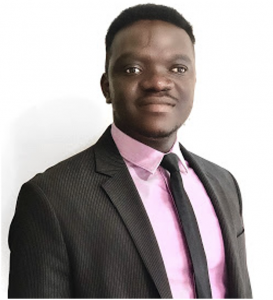
Wednesday, March 23rd at 6-7pm in ASB 323
In this talk we discuss how the multifractal detrended fluctuation analysis (MFDFA) technique can be used to explore the highly irregular behavior or volatility clustering of daily COVID-19 cases in the United States. By using the multifractal spectrum of the MFDFA we will characterize the path and predict the short or long memory behavior of the US COVID-19 Cases on different time scales.
Biography: Osei Tweneboah is Assistant Professor of Data Science at Ramapo College of New Jersey. His main research is Stochastic Analysis, Machine Learning and Scientific Computing with applications to Big Data and Complex Data sets arising in Finance, Public Health, Geophysics, and others. Dr. Tweneboah is co-author of the textbook Data Science in Theory and Practice: Techniques for Big Data Analytics and Complex Data Sets recently published by Wiley.
Categories: Data Science, Lecture Series, MSDS
February 7, 2022How to fail your tech interview successfully
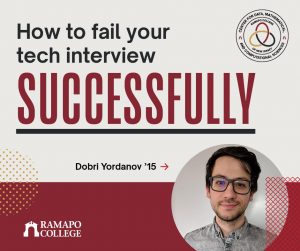
Feb 22nd at 6-7pm in ASB 332
Computer Science is hard. Being a Software Engineer is hard. Translating your computer science skills into a successful Software Engineer gig after college shouldn’t be hard. After interviewing close to 100 candidates at all levels for Google, Facebook and Manticore, Dobri Yordanov has a few tips and tricks to share, as well as pitfalls to avoid. Join us if you’d like to hear about them, be it out of curiosity or practicality. Everyone is welcome!
Biography: Dobri is a Ramapo College ’15 graduate, originally from Bulgaria. Since graduating, he’s built a career as a Software Engineer and a self-described Prototype Wizard in large tech working for Google and Facebook, and most recently landing in the game industry as a principal engineer at Manticore Games. As of ’21, you can occasionally catch him in Ramapo teaching some of our Computer Science classes. He likes long walks on the beach in VR and philosophical ponderings about the nature of our existence and ethics in technology. He will also absolutely listen to you about your favorite algorithm or design paradigm – he is 100% that kind of dork.
Categories: Lecture Series, Uncategorized
Copyright ©2025 Ramapo College Of New Jersey. Statements And Policies. Contact Webmaster.
